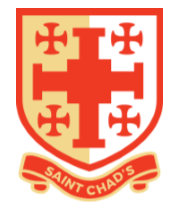Maths
St Chad’s Catholic Primary School
Mathematics Curriculum Intent, Implementation and Impact Statement
Fluent, Confident, Problems Solvers
Intent
At St. Chad's, we believe that every child can master an understanding and love of maths. We aim to ensure that all our pupils develop into enthusiastic mathematical thinkers who are ready to take on the world of mathematics by the time they leave us in year 6. Maths is delivered through an ambitious, connected and sequenced curriculum accessible to all pupils in our school from Reception to year 6. Using the White Rose Maths Scheme, we not only cover all the content of the National curriculum but ensure it is sequenced in a way which maximises all pupils’ understanding of maths and supports its pedagogy. Through our well-thought-out scheme of work, we plan for our pupils to be confident mathematicians who have achieved fluency in all aspects of the curriculum. We have the highest expectations of every learner; we want our pupils to master maths rather than having only surface knowledge and skills in this subject.
At the core of our curriculum is the concrete, pictorial and abstract approach to maths.
Concrete – children have the opportunity to use concrete objects to help them understand and explain what they are doing.
Pictorial – children then build on this concrete approach by using pictorial representations, which can then be used to reason and solve problems.
Abstract – With the foundations firmly laid, children can move to an abstract approach using numbers and key concepts with confidence.
As our pupils progress, our intention is for them to be able to understand the world, have the ability to reason mathematically, have an appreciation of the beauty and power of mathematics, and a sense of enjoyment and curiosity about the subject. Our philosophy is to enable each child to enjoy mathematics and to appreciate its value in everyday life.
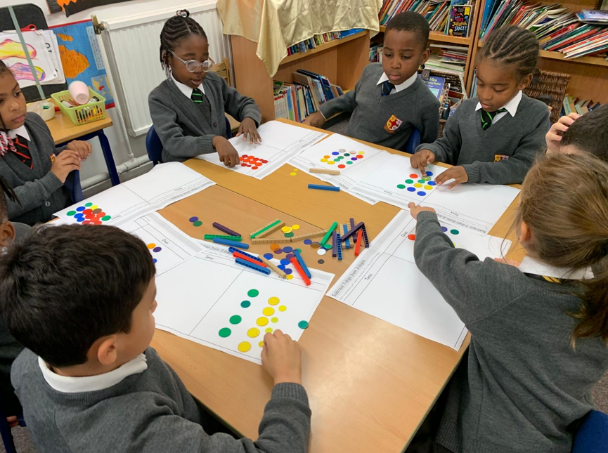
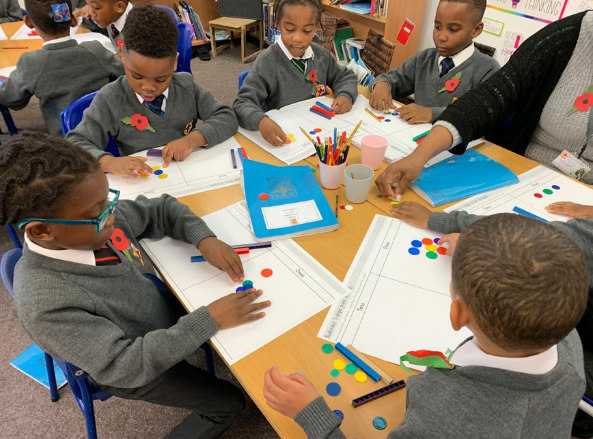
Implementation
The mathematics curriculum at St Chad’s is coherently planned and sequenced through carefully structured curriculum maps for every year group. These are based on the EYFS framework and the National Curriculum. The learning and teaching of maths takes into account all children, including pupils with special educational needs and/or disabilities, through thorough and rigorous planning and assessment. Teachers offer quality first teaching to all pupils through their expert subject knowledge as well as providing engaging lessons and encouraging appropriate discussion.
Our lessons are carefully planned and designed to ensure they address the three key aims of fluency, reasoning and problem-solving, and follow the principles of teaching for mastery. We use the White Rose scheme of work to teach mathematics in EYFS, Key Stage 1 and Key Stage 2. This scheme is inspired and informed by the work of leading maths researchers and practitioners across the world. White Rose uses ‘small steps’ to break down the teaching sequence into smaller achievable steps. Where children require additional support, ‘scaffolds’ are used to support children further to ensure that they have secured the small step before moving on. These ‘scaffolds’ may be in the form of returning to concrete resources or pictorial representations. For children who understand a concept quicker, challenges are used to deepen and challenge learners further within the curriculum area. Daily lessons allow for the acquisition and retention of key concepts through ‘Sticky Learning’.
Times tables play an important part in our maths learning, with children developing their fluency in rapid recall of tables up to 12 x 12 by the end of year 4. While the rapid recall of Times Tables is being developed, children are also learning how to apply and manipulate their understanding of this to reason and solve problems.
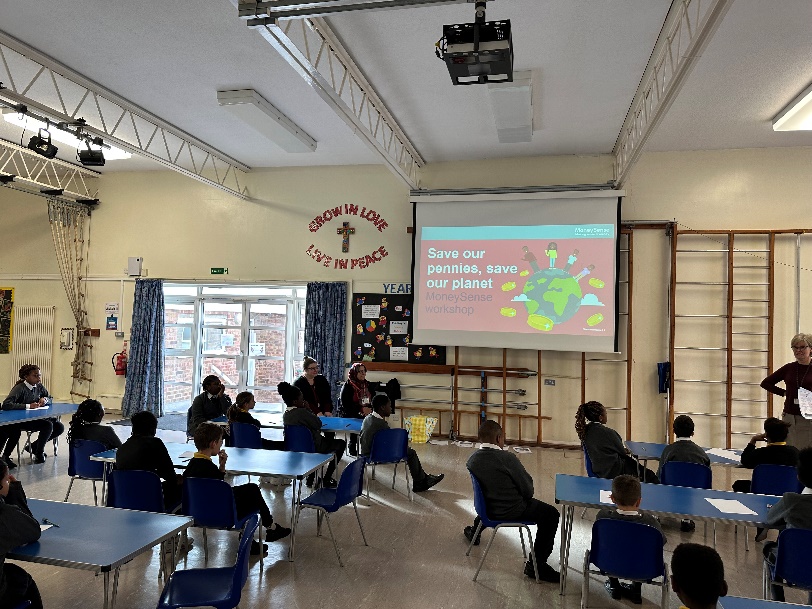
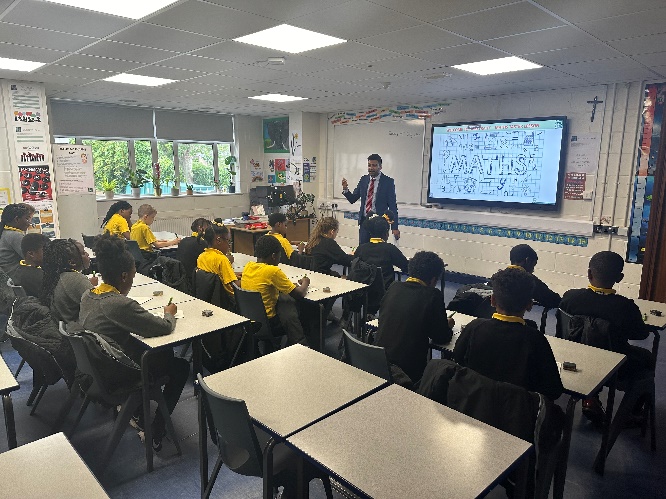
Daily assessment is incorporated throughout the lesson through verbal feedback, as well as end-of-block and half-termly summative assessments. This allows for progress to be carefully monitored and interventions to be put in place where needed. Formal assessment (SATs) takes place at the end of each key stage in years 2 and 6. Homework is set weekly, which contributes to supporting our pupils with reinforcement of the maths skills for their year group. As a school, we celebrate maths learning wherever possible, for example, through a whole school maths week and by participating in an annual Maths Quiz competition with other schools. We provide regular and ongoing training opportunities to all teachers and staff working with children to ensure the consistency of the teaching approaches and methods. We also utilise links with local schools and external agencies, so children can experience maths in different contexts.
Impact
The impact of a Mastery approach to mathematics means that our pupils can quickly and easily manipulate numbers and apply their mathematical knowledge to a variety of problems and applications. They have good mental maths and arithmetic skills and have a solid grasp of the key vocabulary. They are not frightened of numbers and instead relish the challenge and sense of achievement they get from truly mastering mathematics. Our pupils are ready for the next stage of their mathematical journey.
By the end of year 6, transitioning to secondary school, we aspire that a St. Chad’s mathematician will have developed a bank of efficient and accurate skills that can be used effectively to navigate everyday and real life situations. They will become confident and resilient problem-solvers with the ability to reason and articulate their ideas mathematically.

